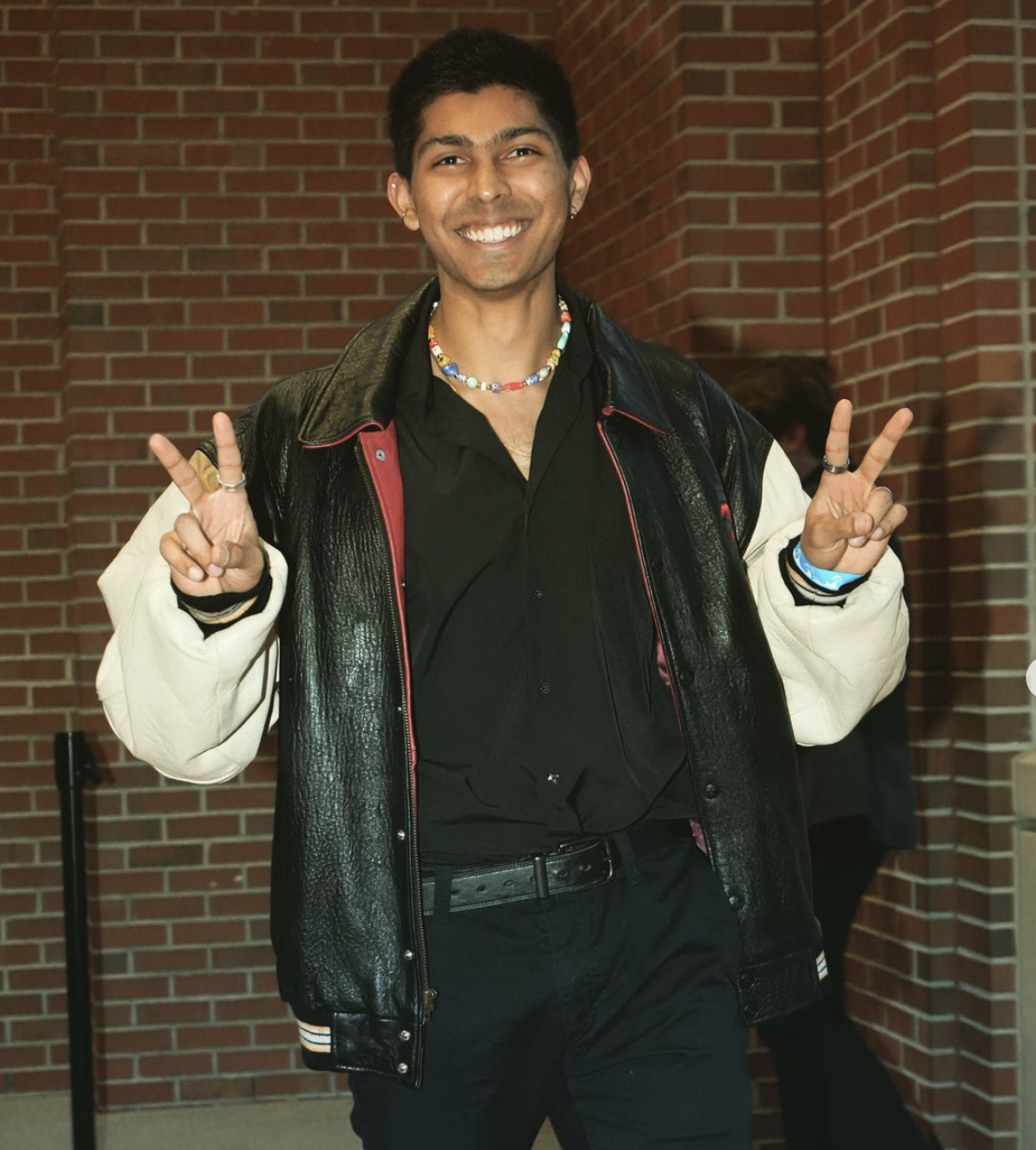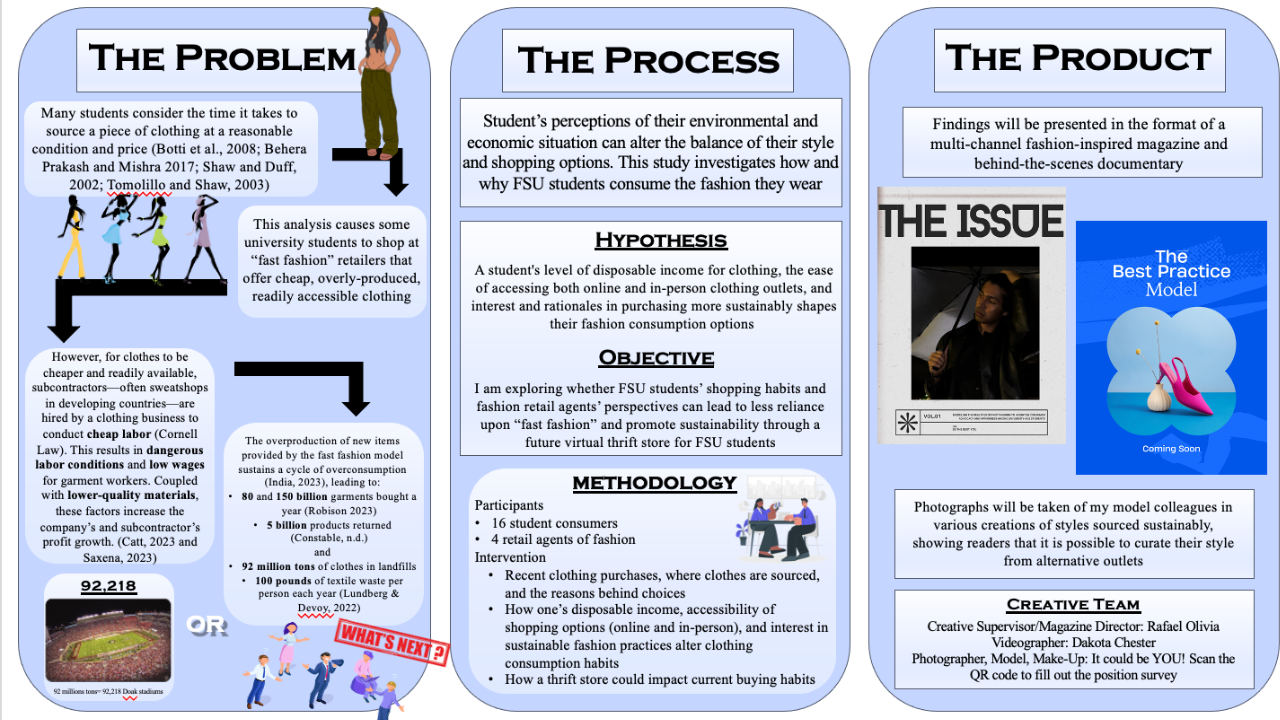Research Symposium
24th annual Undergraduate Research Symposium, April 3, 2024
Dylan Patel-Qadir Poster Session 3: 1:30 pm - 2:30 pm /456

BIO
As a student shopping for affordable clothing due to limited financial resources, I was limited to fast fashion or second hand retailers. Fast fashion retailers made affordable clothing accessible, however it limited my individual style. What began as a sport to find unique clothing to express that individuality, my buying preference changed to shopping for second hand clothing over new fast fashion. My mindful change in purchased clothes led me to research how small sustainable practices can support ecological, human, and economic health and vitality.
Florida State University's Human Rights and Criminology majors opened my perception on the past and current injustices stakeholders face. I urged myself to explore beyond, studying the present exploitation of garment workers to the environmental degradation caused by fast fashion businesses. I was inspired to take action by bringing awareness while providing sustainable options for students to shop for clothes that are affordable and easily accessible. My vision is to become an advocate for basic entitlements without any limitations.
From Passion to Action: Modeling the Realities of Fast Fashion to Heighten Alternative Buying Practices Among University-Age Students
Authors: Dylan Patel-Qadir, Dr. Terry Coonan and Dr. Joseph HellwegStudent Major: Human Rights and Social Justice | Criminology and Criminal Justice
Mentor: Dr. Terry Coonan and Dr. Joseph Hellweg
Mentor's Department: Human Rights and Social Justice Mentor's College: FSU College of Law | Criminology and Criminal Justice Co-Presenters:
Abstract
Many students consider the time it takes to source a piece of clothing at a reasonable condition and price. Coupled with the analysis of their environmental and economic situation, students alter the balance of their style and shopping options, relying more on “fast fashion” retailers that offer cheap, overly-produced, readily accessible clothing. However, for clothes to be cheaper and readily available, subcontractors—often sweatshops in developing countries—are hired by a clothing business to conduct cheap labor. This results in dangerous labor conditions and low wages for garment workers. Coupled with lower-quality materials, these factors increase the company’s and subcontractor’s profit growth. Additionally, the overproduction of new items provided by the fast fashion model sustains 80 and 150 billion garments bought a year with 5 billion of those products being returned. If the products are not kept or returned, as much as 92 million tons of clothes end up in landfills with around 100 pounds of textile waste per person each year. This project investigates why FSU students consume the fashion they wear by undertaking participant observations, and open-ended, semi-structured conversations. Participants involve student consumers and retail agents. I hypothesize a student's level of disposable clothing income, the ease of accessing online and in-person shopping, and their interest and rationales in purchasing second-hand items, shape their consumption options. I explore whether FSU students’ shopping habits and fashion retail agents’ perspectives can lead to less reliance upon “fast fashion” and promote sustainability through a future virtual thrift store for FSU students.
Keywords: Fast fashion, Sustainability, Students, Shopping, Human Rights

